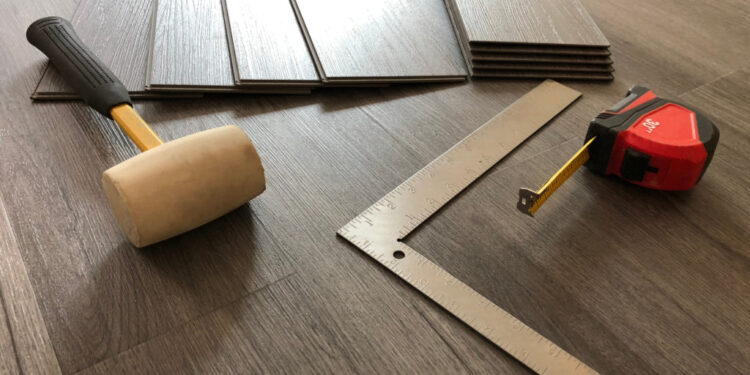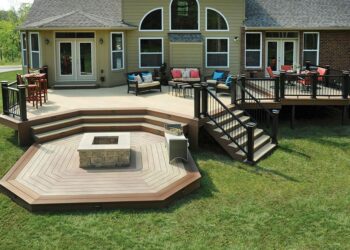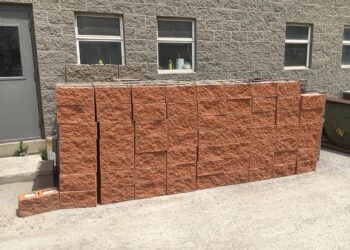Are you thinking about renovating your home or planning to move to a new place? One of the most important decisions you will have to make is choosing the right type of flooring. With so many options available, it can be overwhelming to decide which one will work best for your needs. In this post, we’ll dive into the pros and cons of three popular options: hardwood, vinyl, and laminate. By the end, you’ll have a better understanding of which type of flooring might be the best fit for your home and lifestyle. Just stay with me now!
Overview Of Hardwood Flooring
Hardwood is a traditional choice that will never go out of style. Besides, it can transform a room from drab to dazzling. Hardwood flooring is crafted from real wood and comes in several varieties, such as oak, maple, and cherry. The grain patterns, color differences, and overall durability of various hardwoods are what set them apart from one another.
Pros
Here are just a few of the many advantages of choosing hardwood flooring for your home.
Adds value to your home: Hardwood is a classic choice that can increase your home’s resale value and curb appeal immediately.
Long-lasting: Hardwood floors are a worthwhile choice because, with appropriate care and upkeep, they may endure for decades.
Wide range of styles: Hardwood flooring is available in a broad variety of designs from traditional to contemporary ones. Some of this enabling you to choose the right complement to your home’s existing furnishings.
Cons
While there are many advantages to hardwood floors, there are also some downsides to consider.
Expensive: For people on a limited budget, hardwood floor may be impractical because of its high initial cost.
Prone to scratches and dents: In truth, hardwood floors are long-lasting. However, they are quickly damaged by heavy objects like furniture or high heels.
Can be noisy: Hardwood floors may be loud if they aren’t placed correctly.
High maintenance: Hardwood floors are beautiful, but they need regular upkeep like refinishing and sealing, which can be expensive and time-consuming.
Overview of Vinyl Flooring
Vinyl flooring, sometimes known as PVC flooring, is a kind of synthetic flooring. It is made to seem like natural materials like hardwood, tile, or stone. But it comes at a far more reasonable price range as an eco friendly flooring option.
Pros
Affordable: Vinyl flooring remains one of the most economical solutions available on the market today. This, of course makes it a sensible option for consumers who are working within a limited financial constraint.
Easy to install: The installation of vinyl flooring is so simple that even those with no prior expertise in home improvement projects may do it successfully.
Low maintenance: Vinyl flooring is a great option for folks with hectic schedules because of how little upkeep it takes.
Waterproof: Due to the fact that it is waterproof, vinyl is an excellent option for use in spaces that are prone to dampness, such as bathrooms and kitchens.
Cons
Not as durable: Although vinyl flooring is sturdy, it won’t endure as long as a more permanent option like hardwood or laminate.
Limited styles: Vinyl flooring is not as adaptable as other solutions because of the small number of available design possibilities..
Can be prone to fading: The use of strong chemicals for cleaning or prolonged exposure to sunshine may cause vinyl flooring to fade over time. This may happen due due to exposure to sunlight or harsh cleaning chemicals.
Difficult to repair: This option may be difficult to repair if a little area of it is damaged; in many cases, the whole damaged area will need to be replaced.
Overview of Laminate Flooring
Laminate flooring is a kind of synthetic floor that was also created to seem like more expensive real materials like hardwood or stone. It has a high-density fiberglass nucleus, a photographic layer that simulates the appearance of natural materials, and a protective coating to keep it scratch- and damage-free.
Pros
Budget-friendly: Those on a tighter budget may find laminate option to be a more sensible option than hardwood.
Versatile: it is adaptable to any interior because of the variety of colors and designs it comes in.
Easy to install: Laminate flooring is one of the easiest types of flooring to install, and it doesn’t need much DIY skill to do it.
Durable: This is a wonderful choice for high-traffic homes since it is long-lasting and can handle plenty of foot activity.
Low maintenance: Laminate floor takes very little upkeep, making it an excellent option for those who lead active lifestyles and don’t have a lot of spare time.
Cons
At risk of water damage: Water may destroy laminate flooring if it is not properly maintained.
Could be loud: Incorrect installation may cause laminate floors to creak and make a lot of noise.
Not refinishable: Damaged laminate must be replaced unlike hardwood floors, which may be refinished.
May not add value to your home: Laminate flooring is less costly than hardwood and may not increase the resale value of your property.
So, with this understanding how do you now choose the perfect one for you? Continue reading to find out!
How to Choose the Right Flooring for You
Finding the perfect flooring for your house may be difficult. However, when contrasting the above options, it’s crucial to think about price, longevity, upkeep, and style.
For instance, hardwood flooring provides a timeless and sophisticated aesthetic that may increase the value of your house, but it is more expensive and takes more maintenance.
In contrast, vinyl and laminate are less expensive and need less upkeep than hardwood, but they may not last as long.
Final Thought
So far, all three kinds of flooring may be customized to fit your own aesthetic preferences. At the end, the decision on which flooring type is right for you will depend on your budget and lifestyle.










